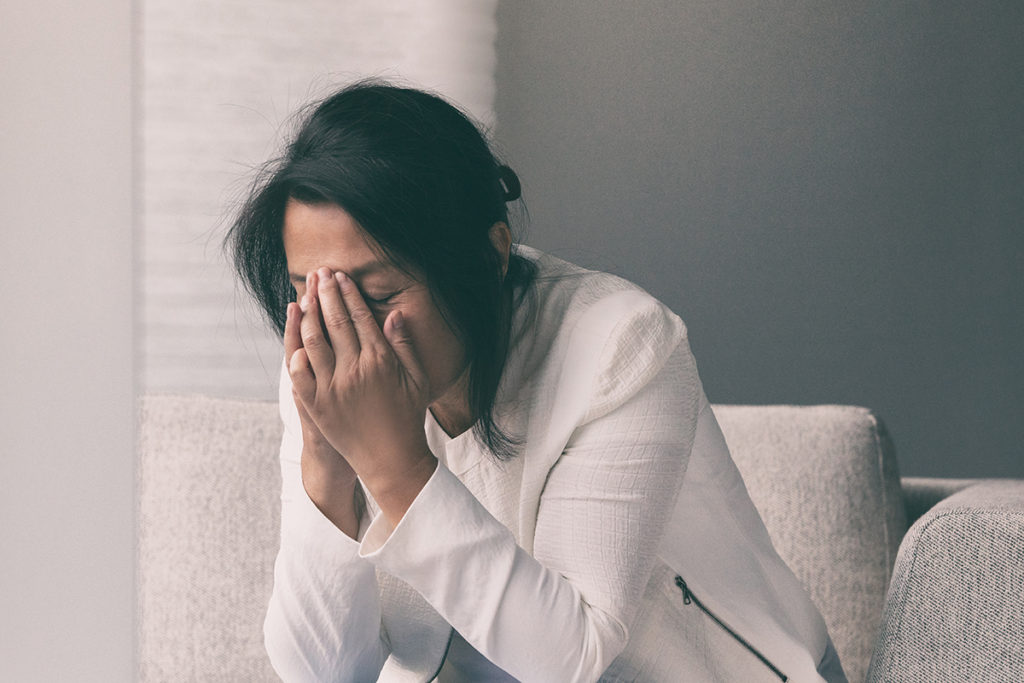In today’s fast-paced world, anxiety has become a common mental health concern affecting millions of individuals, according to World Health Organization. Anxiety attacks, also known as panic attacks, can be incredibly distressing and overwhelming. However, there are various techniques and strategies that can help manage and alleviate anxiety attacks.
Understanding Anxiety Attacks
Anxiety attacks, also known as panic attacks, are intense periods of overwhelming fear that can manifest both physically and emotionally. During an anxiety attack, individuals may experience symptoms such as rapid heartbeat, shortness of breath, chest pain, trembling, dizziness, sweating, and a sense of impending doom. Stress, traumatic experiences, phobias, or underlying mental health disorders can all be triggers for these episodes.
Strategies to Help Manage Anxiety Attacks
In this blog, we will explore some effective methods to help individuals cope with anxiety attacks and regain control over their lives. Certain strategies rely on self-motivation and personal empowerment, while others may necessitate the involvement of a mental health professional for external support and guidance.

Deep Breathing and Relaxation Techniques
Deep breathing and relaxation techniques are effective strategies for managing anxiety attacks. This is because they activate the body’s relaxation response, which counteracts the physiological and psychological symptoms of anxiety.
During an anxiety attack, the body goes into a state of heightened arousal known as the “fight-or-flight” response. This leads to increased heart rate, shallow and rapid breathing, and muscle tension. Deep breathing exercises, such as diaphragmatic breathing, help regulate the breath by slowing it down and deepening it. This activates the parasympathetic nervous system, which is responsible for the body’s relaxation response. As a result, heart rate slows down, blood pressure decreases, and muscle tension eases.
In addition to regulating the breath, deep breathing and relaxation techniques help shift the focus away from anxious thoughts and into the present moment. By paying attention to the breath or engaging in progressive muscle relaxation or guided imagery, individuals divert their attention from the anxious triggers and worries, promoting a sense of mental calmness and reducing anxiety symptoms.
Establishing a Support System
Having a strong support system can significantly aid individuals during anxiety attacks. Friends, family, or support groups can provide understanding, encouragement, and reassurance during difficult times. Sharing experiences with others who have gone through similar struggles can help individuals feel less alone and more supported.
Regular Exercise and Healthy Lifestyle
Engaging in regular physical exercise is known to be beneficial for overall mental health, including anxiety management. Exercise releases endorphins, which act as natural mood boosters. Maintaining a healthy lifestyle by getting enough sleep, eating a balanced diet, and limiting caffeine and alcohol consumption can also contribute to reducing anxiety levels.
Practicing Mindfulness and Meditation
Mindfulness and meditation techniques can be powerful tools in managing anxiety attacks. By focusing on the present moment and accepting thoughts and feelings without judgment, individuals can cultivate a sense of inner calm and reduce anxiety. Mindfulness practices can include meditation, deep breathing exercises, body scans, or simply paying attention to the sensations and experiences of daily life.
Seeking Professional Help
It is essential to seek professional help if anxiety attacks become frequent, severe, or significantly impact daily life. Mental health professionals, such as therapists or counsellors, can provide valuable guidance, support, and evidence-based treatments tailored to an individual’s specific needs. They can offer a safe space to explore the underlying causes and work on effective strategies for managing and reducing their occurrence.
EMDR Therapy
Eye Movement Desensitization and Reprocessing (EMDR) therapy is an innovative therapeutic technique that has proven effective in treating anxiety attacks and related conditions. Originally developed to address post-traumatic stress disorder (PTSD), EMDR therapy has since expanded to encompass various anxiety disorders.
During an EMDR session, the individual recalls distressing memories or experiences while simultaneously engaging in bilateral stimulation. This stimulation can be in the form of eye movements, taps, or sounds. The goal is to facilitate the reprocessing of traumatic memories, allowing the brain to make new connections and integrate the distressing material in a more adaptive way, and transforming negative beliefs into positive ones.
EMDR has been found to be particularly helpful for individuals who have experienced trauma and developed anxiety as a result. By targeting the underlying traumatic experiences, EMDR can help reduce the intensity of anxiety symptoms.
EMDR should be conducted by a trained therapist who can guide the individual through the process and provide appropriate support. EMDR is often used as part of a comprehensive treatment plan for anxiety and may be combined with other therapeutic approaches and strategies to effectively manage anxiety attacks.
Cognitive Behavioural Therapy (CBT)
Cognitive Behavioural Therapy (CBT) is a widely recognized and effective therapeutic approach for anxiety disorders. It helps manage anxiety attacks by addressing negative thoughts, behaviours, and beliefs. It offers practical techniques to reframe unhelpful and inaccurate thoughts. Also, anxiety management techniques are taught to regulate physiological responses during attacks.
CBT helps desensitize individuals to anxiety triggers, thus reducing the frequency and intensity of attacks as well as avoidance behaviours. Problem-solving skills enable individuals to address stressors contributing to anxiety. Relapse prevention strategies help recognize early warning signs and implement coping strategies.
A trained CBT therapist typically focuses on specific goals and techniques. It empowers individuals to actively manage their anxiety attacks by changing their thoughts, behaviours, and responses to anxiety triggers.
Summary
While anxiety attacks can be overwhelming, it is essential to remember that they are manageable and treatable. The strategies mentioned above, self-help or supported by a therapist, can significantly help individuals navigate and cope with the attacks. It is crucial to consult with a mental health professional to determine the most appropriate strategies for individual circumstances. By taking proactive steps and seeking support, individuals can regain control over their lives and find relief from anxiety attacks. Remember, you are not alone, and there is hope for a calmer future and live a fulfilling life.
You are also always welcome to contact me to see if I might be able to support you as you journey forward.

